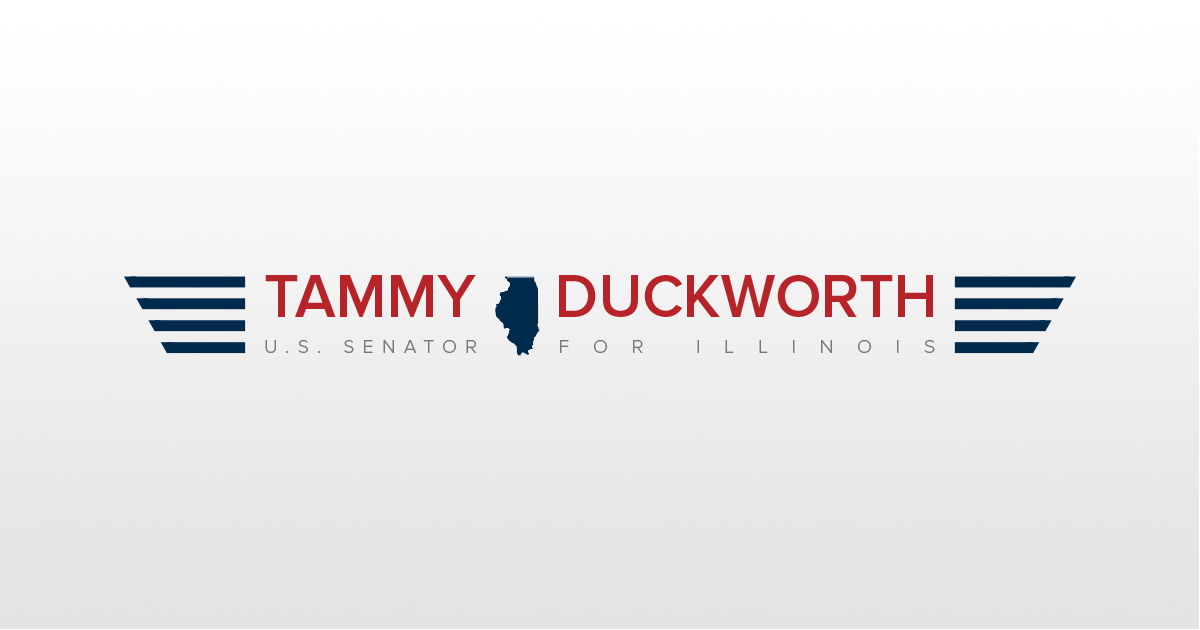Source: United States Senator for Illinois Tammy Duckworth
April 01, 2022
[WASHINGTON, D.C.] – U.S. Senator Tammy Duckworth (D-IL) and U.S. Representative Lauren Underwood (D-IL-14) along with U.S. Senators Thom Tillis (R-NC), Jon Ossoff (D-GA) and U.S. Representative John Katko (R-NY-24) are calling on the Federal Emergency Management Agency (FEMA) to ensure individuals who breastfeed have the support and access to lactation equipment they need after natural disasters. In a letter to FEMA Administrator Deanne Criswell, the Members are requesting FEMA update its Individual Assistance Program Policy Guide (IAPPG) for calendar year 2023 to include clear guidance on supporting access to lactation equipment to ensure all parents and infants are supported in a time of crisis.
“U.S. Dietary Guidelines for Americans and the American Academy of Pediatrics strongly recommends infants be exclusively breastfed for the first six months of life and continue breastfeeding, as part of a comprehensive diet with solid foods, until the age of one,” the Members wrote. “Despite these benefits, roadblocks remain and continue to deter lactating parents from acquiring the support and supplies necessary to sustain their child with an adequate supply of breast milk after disasters. Without clear and accessible information from FEMA, families can be left struggling to access replacement lactation supplies and services.”
While FEMA specifically cites infant formula as eligible for assistance in its guidance materials, neither the IAPPG nor FEMA’s website provides any explicit information on how nursing families can receive financial assistance for securing a new breast pump or other necessary equipment. A lack of clear guidelines can cause confusion for disaster coordinators, survivors and volunteers on the ground in the midst of crisis.
This call builds upon the Delivering Essentials to Mothers Amid Natural Disasters (DEMAND) Act, legislation the Members introduced earlier this year.
Full text of the letter is available here and below.
Dear Administrator Criswell,
We write to request that the Federal Emergency Management Agency (FEMA) include clear guidance on supporting access to lactation equipment and breastfeeding support services as part of its efforts to update the Individual Assistance Program and Policy Guide (IAPPG) for calendar year 2023.
When families are impacted by disaster, a lost or damaged breast pump can leave parents scrambling to feed their babies. In addition, if a lactating individual cannot pump, they may be predisposed to develop mastitis, infection and abscess, which can require hospitalization and antibiotics.
In staff-level conversations, FEMA officials advised that impacted individuals may be able to secure assistance for lactation equipment through the Other Needs Assistance program. Yet, disaster survivors face inconsistent or incomplete information on how to access critical support they may be eligible for to replace their breast pumps and other necessary lactation supplies.
While FEMA specifically cites infant formula as eligible for assistance in its guidance materials, neither the IAPPG nor FEMA’s website provides any explicit information on how nursing families can receive financial assistance for securing a new breast pump or other necessary equipment. As anecdotal reports indicate, the lack of clear guidelines can cause confusion for disaster coordinators, survivors and volunteers on the ground in the midst of crisis.
The importance of breastfeeding and its impact on the healthy development of our next generation cannot be overstated. Breastfeeding is a key strategy to improve our Nation’s public health and has many known health benefits for both the lactating parent and child. As such, the U.S. Dietary Guidelines for Americans and the American Academy of Pediatrics strongly recommends infants be exclusively breastfed for the first six months of life and continue breastfeeding, as part of a comprehensive diet with solid foods, until the age of one.
Despite these benefits, roadblocks remain and continue to deter lactating parents from acquiring the support and supplies necessary to sustain their child with an adequate supply of breast milk after disasters. Without clear and accessible information from FEMA, families can be left struggling to access replacement lactation supplies and services.
In times of disaster and crisis, families and children deserve access to comprehensive and clear guidance for Federal assistance. That is why we have introduced the bipartisan and bicameral Delivering Essentials to Mothers Amid Natural Disasters (DEMAND) Act, which codifies breastfeeding support into FEMA’s existing Individual Assistance programs. Living through a natural disaster or public health crisis can on its own cause serious stress and trauma—wondering how to feed your child should not be an additional worry.
We must ensure that our disaster relief efforts provide comprehensive support to all parents and infants. Therefore, we request that, as part of its effort to update the IAPPG, FEMA produce new public-facing materials to educate nursing parents on their options and how to navigate financial assistance from the agency for breast pumps and other necessary equipment. This should include updated materials and training on any new guidance related to nursing support for disaster relief coordinators, public health workers and other personnel leading FEMA’s on-the-ground response.
Additionally, we request that FEMA develop targeted informational resources for relevant disaster response partners detailing how impacted individuals can access financial support for nursing equipment, such as State emergency management agencies and non-profit organizational partners. As it develops these resources, we find that it may be wise for FEMA to also discuss with its State and local partners how power outages may impact an individuals’ ability and/or medical need to use breastfeeding equipment and store breast milk once expressed. If FEMA needs additional resources or support to develop these materials, please do not hesitate to let us know.
Thank you for your immediate attention to this request. We look forward to working with you to ensure that all parents who choose to breastfeed have access to FEMA support.
-30-
